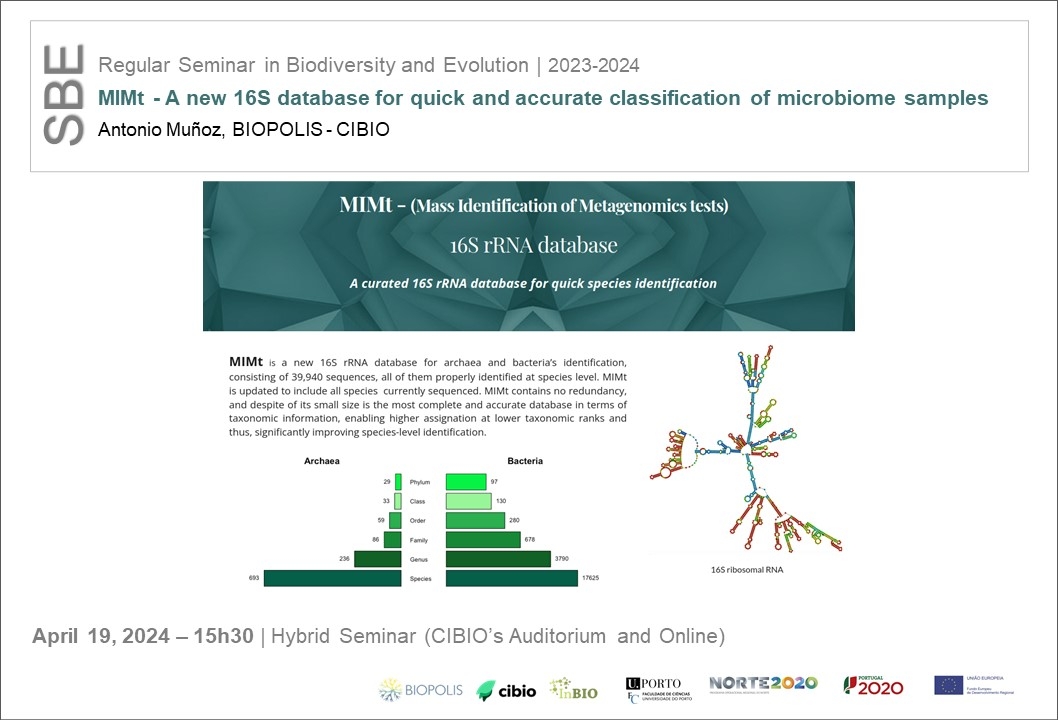MIMt - A new 16S database for quick and accurate classification of microbiome samples
19 Apr 2024 - Antonio Muñoz, BIOPOLIS-CIBIO | 15h30 | Hybrid Seminar

REGULAR SEMINAR IN BIODIVERSITY AND EVOLUTION
Accurate determination and quantification of the taxonomic composition of microbial communities, especially at the species level, is one of the major issues in metagenomics. This is primarily due to the limitations of commonly used 16S rRNA reference databases, which either contain a lot of redundancy, or a high percentage of sequences with missing taxonomic information. The use of these incomplete or biased databases may lead to erroneous identifications and, thus, to erroneous conclusions regarding the ecological role and importance of those microorganisms in the ecosystem. MIMt is a new 16S rRNA database for archaea and bacteria’s identification, encompassing 39 940 sequences, all precisely identified at species level. MIMt was evaluated together with Greengenes, RDP, GTDB and SILVA in terms of sequence distribution and accuracy of taxonomic assignments. Our results showed that MIMt contains less redundancy, and despite being five to 85 times smaller in size than existing databases, outperforms them in completeness and taxonomic accuracy, enabling more precise assignments at lower taxonomic ranks and thus, significantly improving species-level identification.
Antonio Muñoz Mérida is a bioinformatician at the service of the CIBIO-BIOPOLIS community for more than 9 years. In this time Antonio has analyzed data from multiple projects mainly associated with data from NGS and collaborated in more than 30 scientific publications. His skills include large-scale data analysis (genomics, transcriptomics, variant calling, annotation) as well as software development and workflows for automatic data set analysis.
[Host: Nuno Fonseca, IT and Bioinformatics]